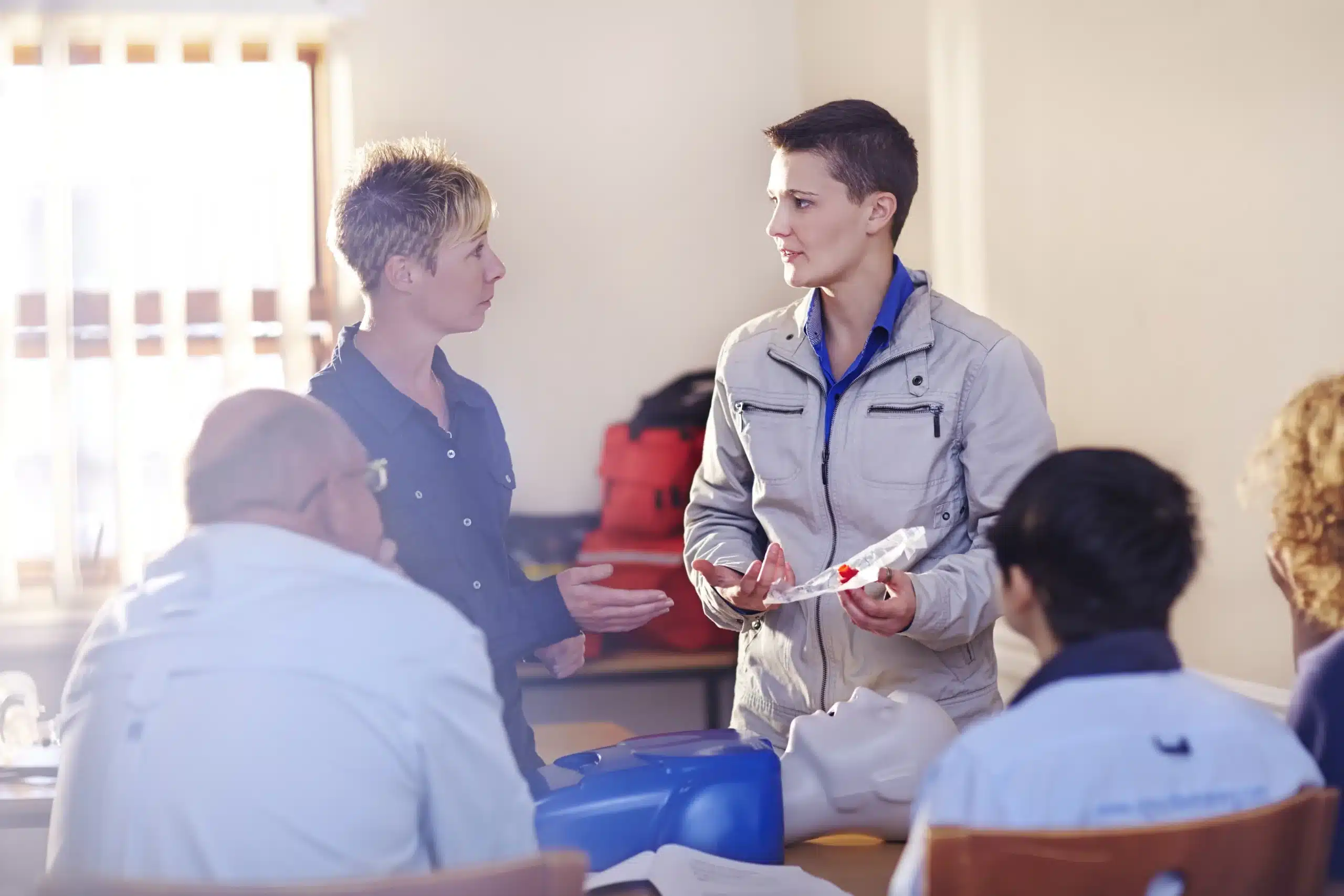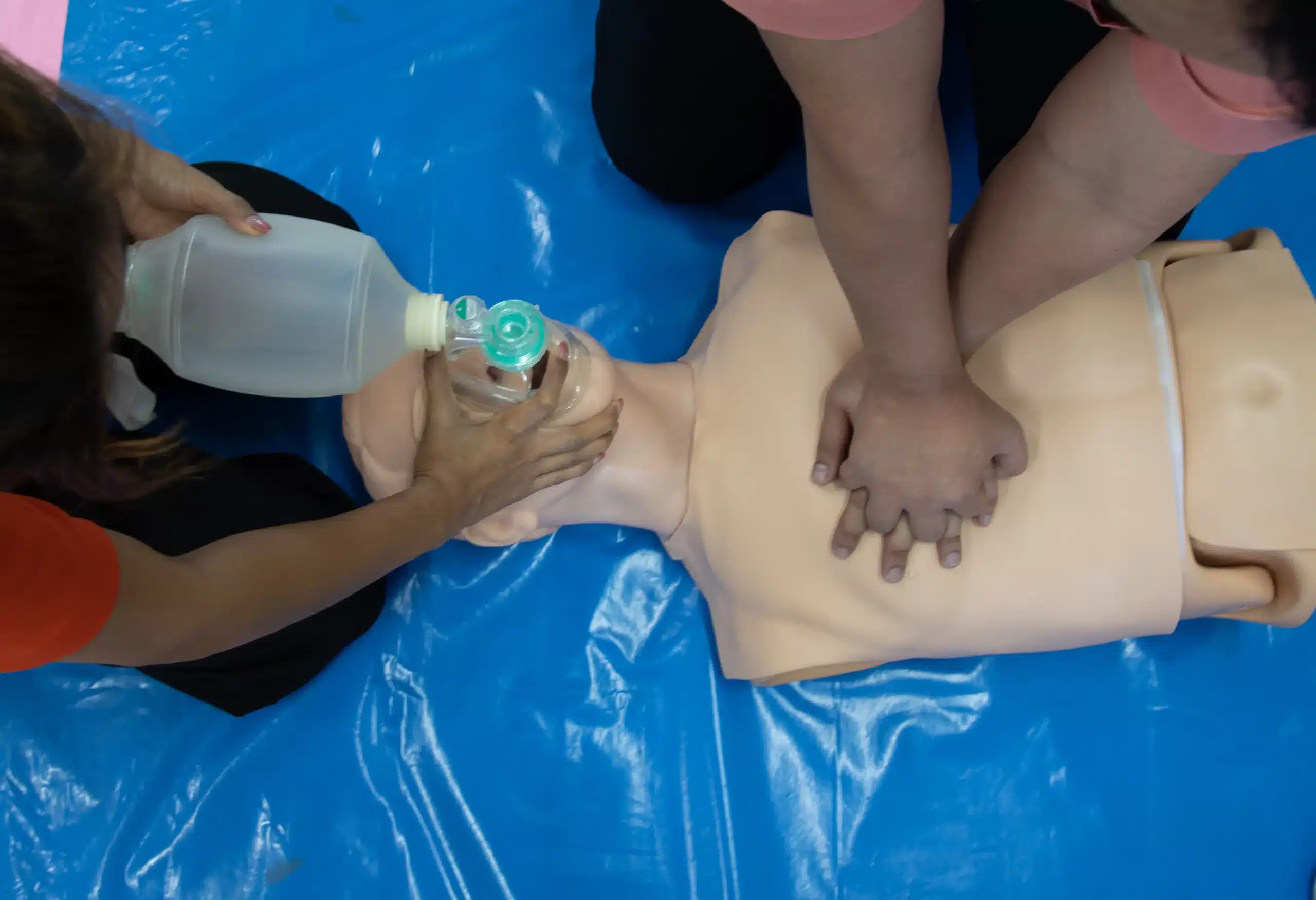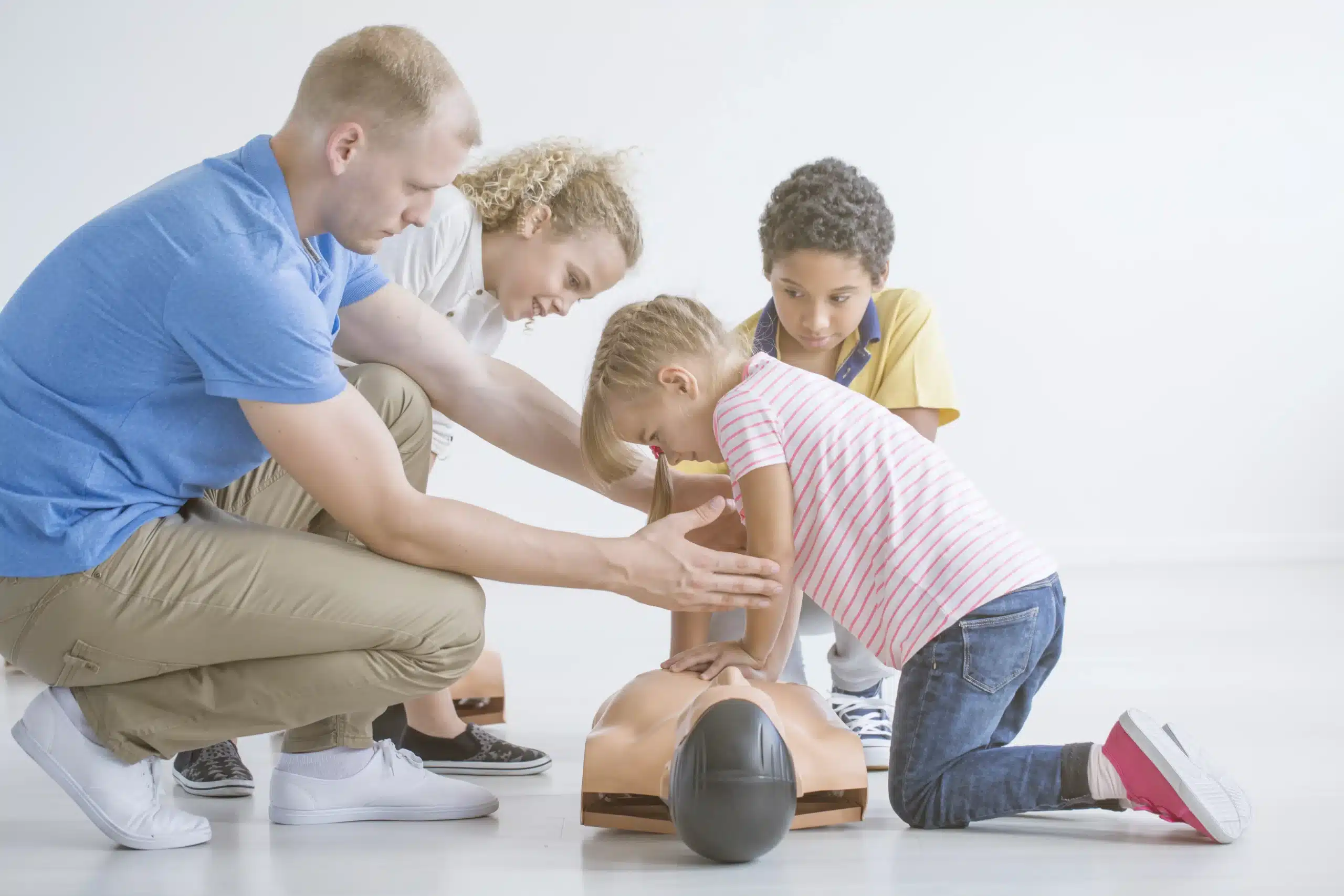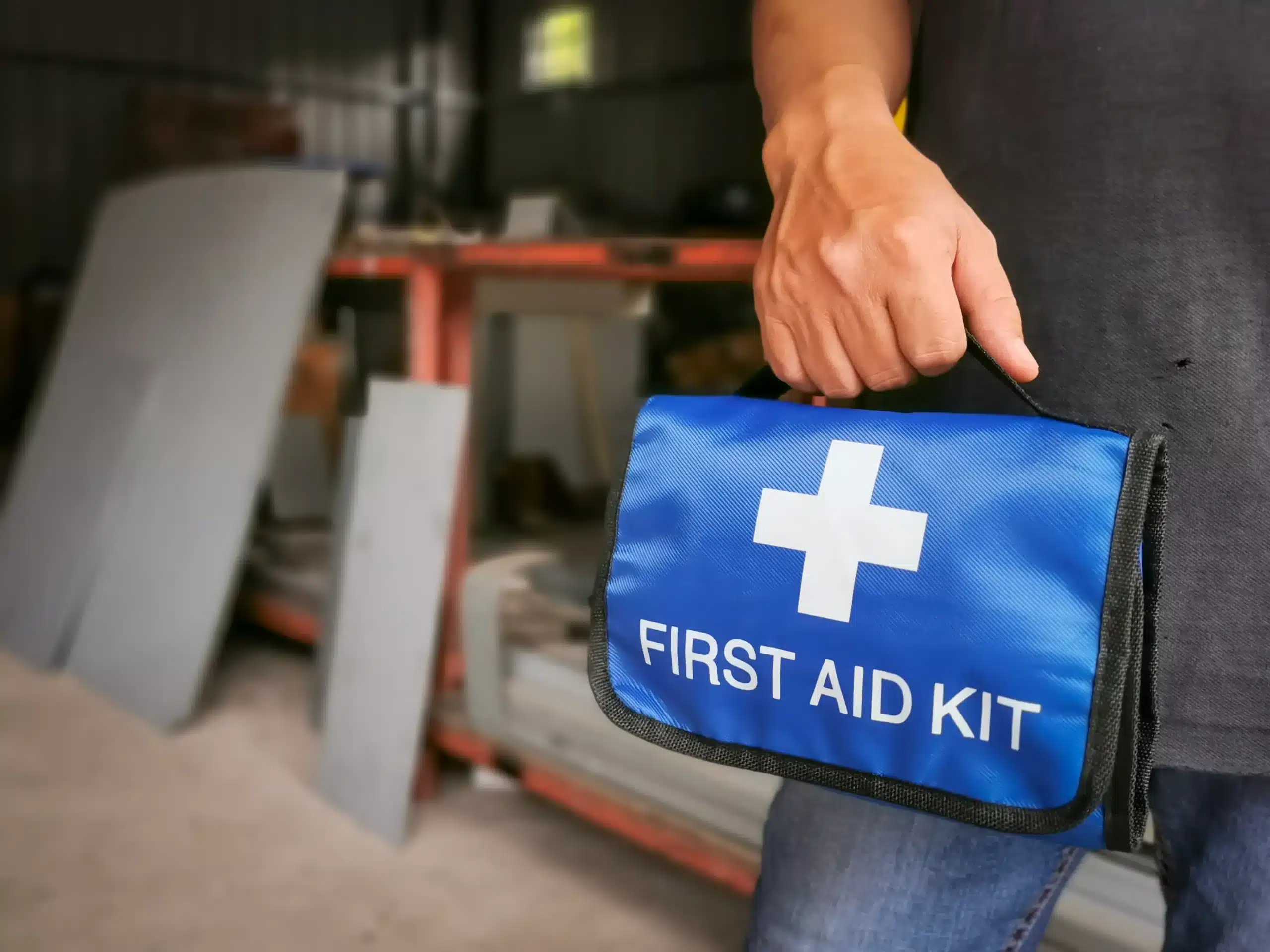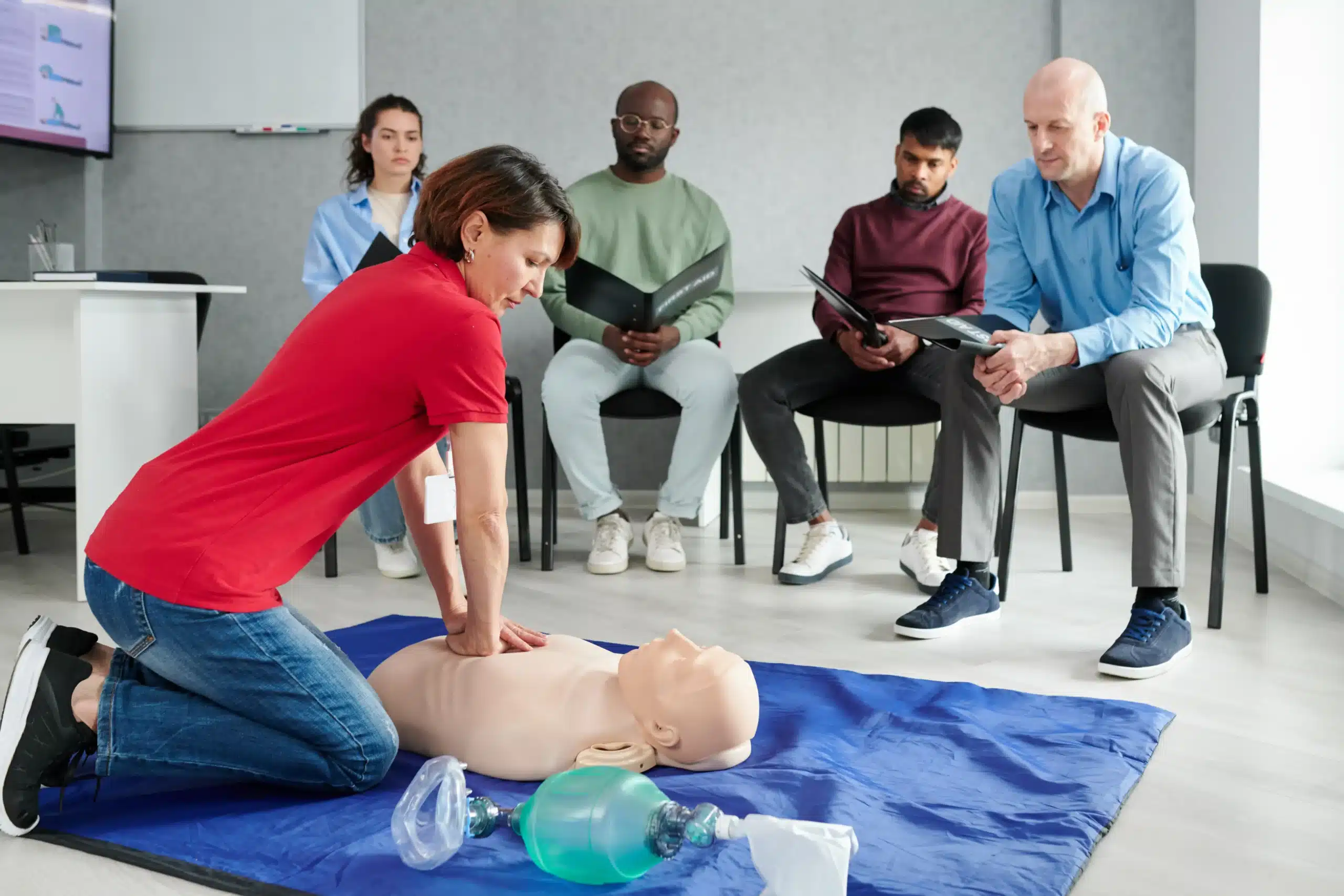Life is unpredictable, and knowing how to respond in a medical emergency can make all the difference. Online CPR classes in San Jose offer a flexible and convenient way to equip yourself with these life-saving skills. This article explores the world of online CPR training, providing valuable insights into the various courses, providers, and certifications available in San Jose. We’ll discuss the benefits of online learning, compare different course formats, and address common concerns about online CPR certification. Whether you’re a medical professional, a childcare provider, or simply someone who wants to be prepared for anything, this guide will help you find the perfect online CPR class to meet your needs and empower you to save a life.
Key Takeaways
- Online CPR training offers flexible learning: Choose from fully online, blended learning, or traditional classroom settings to fit CPR training into your schedule and preferred learning style.
- Find the right CPR class by comparing providers: Consider factors like cost, instructor experience, course format (online, blended, in-person), available discounts, and industry accreditation to make an informed decision.
- CPR certification empowers anyone to save lives: Whether for professional requirements or personal growth, learning CPR equips you to respond effectively in emergencies. Explore available resources and choose a course that meets your needs.
What are Online CPR Classes?
Online CPR classes offer a flexible way to learn this vital skill, providing the same essential information as traditional in-person classes, but from the comfort of your home. You’ll cover the same techniques and guidelines, from recognizing cardiac arrest to performing chest compressions and rescue breaths. These online CPR certifications are accepted in California, provided they meet the standards of reputable organizations like the American Heart Association and the American Red Cross. Always double-check with your licensing board or employer for clarification on specific certification requirements.
Benefits of Online CPR Training
The flexibility of online CPR training is a major advantage. Enroll anytime, from anywhere, and learn at your own pace. This format makes it easier to fit into a busy schedule, whether you’re a working professional, parent, or student. Online courses often include interactive elements like videos and simulations, making the learning process more engaging. It’s all about empowering yourself with a life-saving skill on your terms. Learning CPR can significantly improve the survival rate for someone experiencing out-of-hospital cardiac arrest.
Who Needs CPR Certification?
Many people pursue CPR certification for various reasons. Healthcare professionals like nurses and doctors often require it for their jobs. Others may need it to meet licensing requirements. And some simply want to be prepared for emergencies. CPR certification is a valuable asset, whether for professional reasons or personal peace of mind. It equips you to respond confidently in critical situations and potentially save a life. If you’re considering getting certified, explore the available options and find the best fit. Resources like Pro CPR offer more information on why people choose to get certified.
Top Online CPR Class Providers in San Jose
Finding the right CPR class can feel overwhelming with so many options. To simplify your search, I’ve put together a quick overview of some well-known providers offering CPR training in San Jose. Remember to check their websites for the latest course information and schedules.
American Red Cross
The American Red Cross offers various CPR and first-aid classes in San Jose, including options that meet OSHA workplace standards. They have in-person classes and blended learning that combines online coursework with in-person skills sessions. Red Cross certifications are typically valid for two years.
American Heart Association
You can find American Heart Association-certified courses—including CPR, BLS, ACLS, PALS, and First Aid—at the Emergency and Health Training Center. They work with various professions, from healthcare to childcare, and also offer classes in Spanish and Vietnamese.
CPR Training Center
The CPR Training Center provides CPR classes that meet OSHA requirements. They offer traditional classroom courses and blended learning formats. You can receive same-day certification after completing their training.
Safety Training Seminars
Safety Training Seminars offers various CPR and first-aid classes in and around San Jose. While some providers offer online or blended learning, always confirm that these options meet all requirements for your specific needs, since hands-on practice is essential for effective CPR.
National CPR Foundation
The National CPR Foundation offers online CPR and first-aid training courses designed for both individuals and organizations. You’ll receive certification upon completing their online programs.
Sunnyvale CPR Classes
Sunnyvale CPR Classes offers various courses, including BLS certification, and has discounts for group registrations. They prioritize a supportive and engaging learning environment to make CPR training accessible and comfortable for everyone.
Online CPR Class Formats and Features
Finding the right online CPR class means understanding the different formats and features available. Let’s break down the options so you can choose the best fit for your learning style and schedule.
Fully Online Courses
Fully online CPR training offers incredible flexibility. You can enroll anytime, anywhere, and learn at your own pace. This format is perfect for busy professionals, parents, or anyone who prefers self-directed learning. It allows you to fit the training around your existing commitments, revisiting modules as needed. Keep in mind that fully online courses may require an in-person skills assessment for certification. Some providers offer this component on a flexible schedule, allowing you to choose a time and date that works for you.
Blended Learning Options
Blended learning combines online convenience with hands-on practice. You’ll complete the theoretical coursework online, then attend an in-person skills session. Organizations like the American Red Cross offer blended learning CPR classes in San Jose. This approach lets you learn the material at your own speed before demonstrating your skills. This blended format ensures you grasp the concepts and develop the muscle memory needed to perform CPR effectively.
Self-Paced vs. Instructor-Led
Many online CPR training programs offer the choice between self-paced and instructor-led formats. Self-paced learning gives you complete control over your schedule, allowing you to move through the modules at your own speed and take breaks when needed. Instructor-led courses follow a set schedule with live sessions and instructor interaction. Providers like First Aid Pro offer both options, letting you choose the format that best suits your learning preferences. Consider whether you thrive in a structured environment or prefer the freedom to learn independently.
Interactive Elements and Engagement Strategies
Modern online CPR courses often use interactive elements and engagement strategies to enhance learning. These can include videos, quizzes, simulations, and other interactive exercises. These features make learning more engaging and help improve knowledge retention. Easy accessibility on any mobile device or computer is another key feature, allowing you to learn on the go. Look for courses that offer a variety of interactive elements to keep you motivated and ensure a comprehensive learning experience.
CPR Certification, Validity, and Accreditation
Understanding CPR certification, its validity, and the accreditation of training providers is crucial for choosing a course that meets your needs and professional requirements. This section clarifies these aspects, helping you make an informed decision.
Types of Certifications Offered
Several organizations offer CPR and First Aid certifications. The American Red Cross provides a range of CPR and First Aid classes, covering everything from basic life support to more specialized areas. The American Heart Association also offers a comprehensive suite of certifications, including BLS, ACLS, PALS, and First Aid. These courses cater to various professions and levels of expertise, ensuring there’s an appropriate certification for everyone from healthcare providers to concerned citizens. At Safety Training Seminars, we offer American Heart Association certifications, ensuring your training aligns with industry-leading standards. You can explore our BLS and ACLS course pages for more details.
Validity Periods and Renewal Process
CPR certifications are typically valid for two years. Both the American Red Cross and the American Heart Association offer renewal courses to keep your skills sharp and your certification current. Renewal processes often involve a shorter refresher course, covering essential techniques and updates to guidelines. The American Heart Association also offers streamlined renewal options, such as a 45-minute skills check after completing the online portion of a hybrid course. This flexibility accommodates busy schedules, making it easier to maintain your certification.
Accreditation and Industry Recognition
Accreditation ensures that CPR training courses meet established standards and provide high-quality instruction. The American Red Cross develops its courses using up-to-date information reviewed by medical and scientific experts. These courses also meet OSHA requirements, making them suitable for workplace safety compliance. The American Heart Association also adheres to industry standards, offering both classroom and blended learning formats. When choosing a CPR class, look for providers like Safety Training Seminars committed to delivering accredited training that meets rigorous standards. Our low price guarantee reflects our commitment to providing accessible, high-quality training. We also offer group discounts, making it even more affordable to train your team. For healthcare professionals seeking to maintain their resuscitation skills, our RQI program offers a flexible and convenient option.
Compare CPR Class Costs and Value
CPR certification is a valuable investment, but understanding the costs and what you get for your money is essential. Let’s break down how to compare CPR class costs and find the best value.
Price Ranges for Different Providers
CPR class prices in San Jose can vary. You’ll find everything from budget-friendly options to premium courses. Safety Training Seminars offers accessible CPR certification with flexible class times and a low-price guarantee, making it a solid choice for value-seekers. Checking with a few different providers, like the American Red Cross and American Heart Association, is always smart to understand the general price range. Don’t forget to check local community centers or hospitals, as they sometimes offer lower-cost classes.
Available Discounts and Promotions
Before committing to a class, see if any discounts are available. Many providers, including Sunnyvale CPR Classes, offer discounts for group enrollments—perfect for workplace training or groups of friends. Keep an eye out for seasonal promotions or early bird discounts, too.
Low Price Guarantees and Group Rates
Some providers offer a low-price guarantee, promising to match or beat competitor pricing. Sunnyvale CPR Classes and Safety Training Seminars are two examples. This gives you peace of mind knowing you’re getting a good deal. If you’re training a team, ask about group rates. Even if a provider doesn’t advertise them, they might offer a discount for larger groups, making training more affordable and convenient.
CPR Instructor Qualifications and Training Quality
When your health or the health of a loved one is on the line, you want to know the person providing CPR instruction is qualified. Choosing a CPR class with experienced, knowledgeable instructors ensures you receive high-quality training and feel confident in your skills. Here’s what to look for:
Instructor Backgrounds and Expertise
Experienced instructors often have medical backgrounds, such as EMTs, registered nurses, or paramedics. This real-world experience translates to practical, insightful instruction. For example, CPR Training Center highlights their instructors’ medical field backgrounds, bringing valuable expertise to the classroom. Safety Training Seminars also emphasizes a supportive learning environment, making training accessible and less intimidating for students. A comfortable atmosphere helps students ask questions and fully grasp the techniques.
Quality Assurance Measures
Look for classes that adhere to established standards and use current medical practices. OSHA-compliant training, like that offered by the Red Cross, ensures the course content meets workplace safety requirements. The Red Cross also ensures all course materials reflect up-to-date information reviewed by medical and scientific experts, guaranteeing you’re learning the most effective techniques.
Student Reviews and Feedback
Reading reviews from past students offers valuable insights into the quality of instruction. Positive feedback about instructors who create a fun, informative, and comfortable learning environment, like those mentioned on Bay Area CPR, can give you confidence in your choice. Look for comments that mention instructors’ teaching styles and their ability to make the material engaging and relevant, as highlighted in some Yelp reviews. These firsthand accounts can help you find an instructor who fits your learning style.
Choose the Right Online CPR Class in San Jose
Finding the perfect online CPR class can feel a little overwhelming with so many options. But by breaking it down into a few key steps, you can confidently choose a course that fits your needs and learning style.
Assess Your Specific Needs
Before you start browsing, take a moment to consider why you’re pursuing CPR certification. Are you required to have it for your job, or are you taking it for personal enrichment? Knowing your “why” will help you determine which type of certification you need. Some professions require specific certifications like BLS for healthcare providers or CPR/First Aid for childcare providers. While online courses offer convenience, remember that hands-on practice is crucial for truly mastering CPR. If you’re unsure about the requirements for your profession, it’s always a good idea to check with your employer or licensing board.
Compare Course Features and Flexibility
Once you know what type of certification you need, you can start comparing course features. Look at what each course offers. Do they provide all the training materials? What about the format—is it entirely online or a blended learning experience with an in-person skills session? Think about your schedule and learning preferences. Sunnyvale CPR Classes offers a range of courses, including BLS certification, and even has discounts for groups. Flexible class times and convenient locations can make a big difference. If you need a streamlined option for quick certification or renewal, check out the RQI program offered by Safety Training Seminars. Consider whether you prefer self-paced learning or the structure of an instructor-led course.
Overcome Common Misconceptions
You might have heard some things about online CPR training that give you pause. For example, some people believe online CPR certification isn’t legitimate. This isn’t true. High-quality online programs are perfectly valid and can be a great way to learn CPR. Another misconception is that only healthcare professionals need CPR training. Anyone can benefit from learning these life-saving skills. Empowering yourself with this knowledge can make a real difference in an emergency. This article debunking common misconceptions about CPR is a good reminder that CPR training is for everyone.
Make an Informed Decision
Choosing the right CPR class is a personal decision. By assessing your needs, comparing features, and understanding the facts about online training, you can make an informed choice. Don’t forget to consider factors like cost and instructor qualifications. A little research upfront will ensure you find the perfect fit.
Related Articles
- Online CPR Classes in Sunnyvale: A Complete Guide
- CPR Classes in San Jose: Find the Right Course for You – Sunnyvale CPR Classes
- CPR Certification in San Jose: A Practical Guide – Sunnyvale CPR Classes
- CPR Renewal in Sunnyvale: Your Complete Guide – Sunnyvale CPR Classes
- CPR Certification in Santa Clara: Your Guide – Sunnyvale CPR Classes
Frequently Asked Questions
Is online CPR certification accepted in California? Yes, online CPR certifications are accepted in California, as long as they meet specific requirements. Always confirm with your employer or licensing board to ensure the online certification you choose aligns with their standards. Reputable organizations like the American Heart Association and the American Red Cross offer certifications widely accepted throughout the state.
What’s the difference between online and in-person CPR training? Both online and in-person CPR training cover the same core material, from recognizing the signs of a cardiac event to performing chest compressions and rescue breaths. The main difference lies in the delivery method. Online training offers flexibility, allowing you to learn at your own pace and on your own schedule. In-person classes provide a more structured environment with direct interaction with an instructor. Many online certifications require an in-person skills assessment, combining the convenience of online learning with the practical experience of hands-on training.
How much do CPR classes typically cost? The cost of CPR classes varies depending on the provider, the type of certification (CPR, BLS, ACLS, etc.), and the format (online, blended, or in-person). You can often find options ranging from budget-friendly to premium courses. It’s always a good idea to compare prices from different providers and inquire about potential discounts for groups or students.
How long is CPR certification valid, and how do I renew it? CPR certifications are typically valid for two years. Renewal usually involves taking a refresher course that covers essential techniques and any updated guidelines. Check with your certifying organization for specific renewal requirements and available options. Some organizations offer streamlined renewal processes, including online components and abbreviated skills checks.
How can I find a reputable CPR training provider in San Jose? Start by researching established organizations like the American Red Cross and the American Heart Association, which often have local chapters or training centers in San Jose. Look for providers that offer accredited courses and emphasize instructor experience. Reading reviews and comparing course features can also help you find a provider that meets your needs and learning style. Don’t hesitate to contact providers directly to ask about their programs and instructor qualifications.
